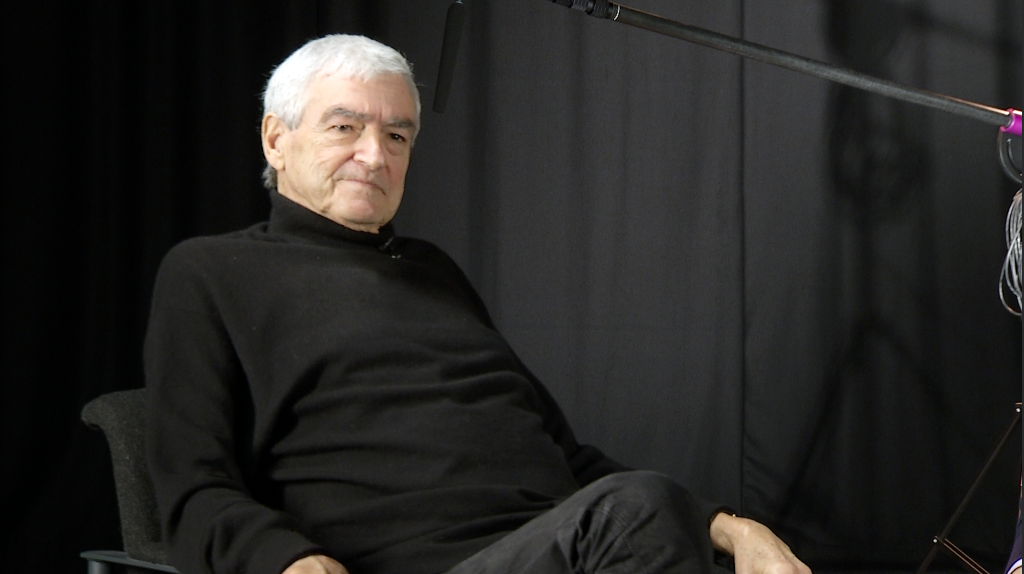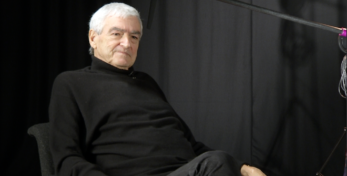Today we were very sad to learn of the passing of Terry Rawlings, film editor and post-production supervisor on some of the most well known and recognised films of the latter half of the 20th Century.
Terry was born in London in 1933, he started working in the industry in 1955 when he joined Rank Screen Services.
After leaving Rank, and with a union card, he went to Shepperton to work as an assistant editor on Town on Trial (1957) starring John Mills. Following this, he became a trainee at Elstree Studios (ABPC) in Borehamwood, where he worked in the cutting rooms on various films as an assistant sound editor until 1961.
“I […] became an apprentice in the film business because I loved what I was doing. And every time we worked with a different editor you learnt something new. And the thing is you learn to pick the bones out of the good and the bad. And eventually I got my opportunity with them which was great.”
In 1962 Terry was given the opportunity to be the sound editor on The Pot Carriers and he continued to work as a sound editor for the next 17 years on productions including Crooks in Cloisters (1964), Bedazzled (1967), The Devils (1971) for Ken Russell and The Duellists (1977) for Ridley Scott. Terry would work for Russell and Scott repeatedly throughout his career.
“When I first got my opportunity to do be a sound editor – it’s a big responsibility – you know, you’d never done it; you watched people do it and thought ‘I know how to do this’. The film I got first was about a prison, people in prison, called The Pot Carriers. And it had 30,000 doors and cell doors opening and closing. So I selected as many as I could find from libraries and shot things myself and I put them in this film. And the producer came in while we were doing one on the road and he said ‘I hate the doors in this film’ and you think ‘I have no idea what to do now!’ He said ‘You have to change them all.'”

Terry continued to work on film soundtracks, often producing them, alongside moving into picture editing on features. Terry produced the soundtracks to films including Women in Love (1969) (receiving two BAFTA nominations that year for Best Sound Track), The Devils (1971), Tommy (1975), Lisztomania (1975), Watership Down (1978) and Yentl (1983), often working with his close friend Ray Merrin. Lisztomania was the first film soundtrack to be released in Dolby Stereo, at Elstree Studios, and Terry worked directly with Ray Dolby. Tommy was mixed in “Quintophonic” five channel sound, which was a pioneering first in film sound. In later years 5.1 surround mixes have become commonplace.
Moving into picture editing, Terry edited the animated classic Watership Down (1978), before returning to work with Ridley Scott as editor of Alien (1979). He was nominated for a BAFTA award for his work, helping to craft the slow tension throughout the film. This was followed by Chariots of Fire in 1981, for which Terry was nominated for not just a BAFTA but also an Academy Award for Best Editing.
“With Chariots of Fire I wanted to do these long dissolves – because we recently had an Olympics anyway, and I thought ‘well they’ve done all these things – races…’ and they’ve shown everything in the documentaries about the Olympic Games. I wanted to turn some of these races into like a ballet and discussed it with Hugh Hudson, and he did all this wonderful slow motion material. So you could really turn it into a ballet.”
In 1982, he returned to work with Scott as the editor of Blade Runner. As the film was being edited in Los Angeles, and Terry wasn’t a member of the union, he was barred from being allowed to be credited as Editor, so on the credits he is named as Supervising Editor. A large part of the film was edited in his hotel room, as there were constant fights between the film producers and Scott as to the ownership and editorial cut of the film. The film has since been released in five different versions, with the most recent dubbed “The Final Cut”. Terry was once again nominated for a BAFTA for editing.

Returning to Elstree, Terry edited Yentl (1983) for Barbara Streisand, and Legend (1985), another Ridley Scott film. Terry’s later films include Pierce Brosnan’s first outing as James Bond in GoldenEye (1995), U.S. Marshals – the sequel to The Fugitive – in 1998, and his final film The Phantom of the Opera (2004) which he edited digitally on Lightworks.
“I think Ridley Scott’s demanding; I think Barbra Streisand was, but on the other hand – I mean I loved working with her – and I think the fact that she she demands so much brings more out of you than you thought you had. I think it’s good to work for demanding people.”
Terry worked with Ray Merrin on numerous films for almost thirty years. A supporter and champion of the quality of the work achieved in sound at Elstree, even after moving on to edit films shot elsewhere, Terry often made sure the sound mixes for the films he worked on came back to Elstree. Together, they worked on the soundtrack to Blade Runner, and they mixed the penultimate film soundtrack to use the cutting rooms at Elstree Studios before it was demolished, Not Without My Daughter in 1991.
“Women in Love was a [favourite] because I loved doing that soundtrack and also working with Ken, and then Alien when it came to editing. Yentl was also one of my favourites. They’re like your children, funnily enough, and it’s very hard to say ‘I like that one better than the other one’.”
A founder member of the Guild of British Film and Television Editors, and one of the earliest supporters of The Elstree Project, Terry gave a wonderful joint interview for us with Ray Merrin in 2010. The excerpts here are from that interview. We are very grateful to his support over the years – including a further on-stage interview at the University of Hertfordshire Visions Festival, and at the public launch of The Elstree Project. We send our love and thoughts to his family and friends at this time.
Terry Rawlings, 1933 – 2019

